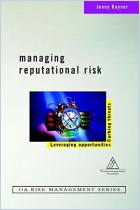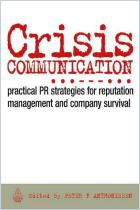
New Strategies for Reputation Management
Gaining Control of Issues, Crises & Corporate Social Responsibility
Read or listen offline
Recommendation
A person’s reputation is his or her most valuable asset. This is also true of corporations. As author Andrew Griffin explains, a corporation’s reputation is the result of how it manages social responsibility, crises and issues. Griffin notes that more corporations now acknowledge the importance of reputation, but few turn that awareness into anything tangible. Yet, unfortunately, when a firm’s reputation goes bad, it is nearly impossible to fix. By defining the key terms involved in reputation management and providing specific examples, Griffin makes his points clearly. He delves into issues management and the benefits of being a good corporate citizen. getAbstract recommends this book to business communication professionals and other executives who want to learn how to shape the way the public regards their corporations.
Take-Aways
About the Author
Andrew Griffin is a corporate-reputation specialist and the managing director of an international reputation risk management consultancy. He is a frequent speaker, writer and commentator.



















Comment on this summary or 开始讨论